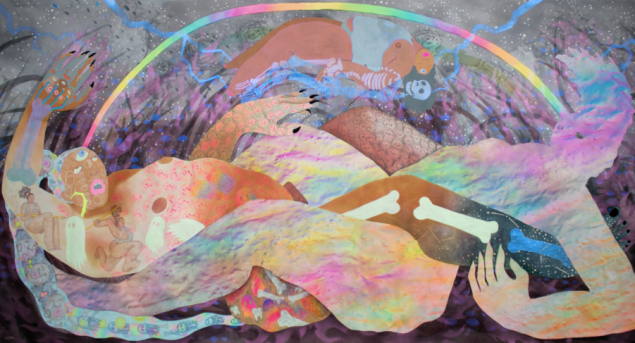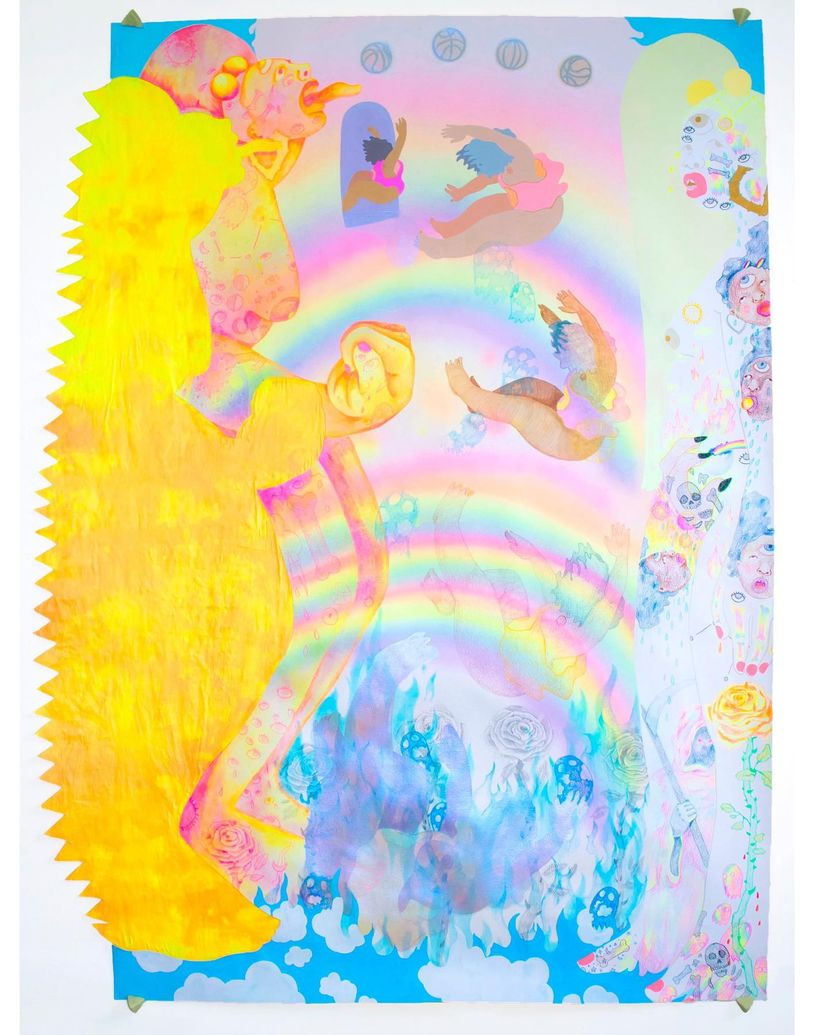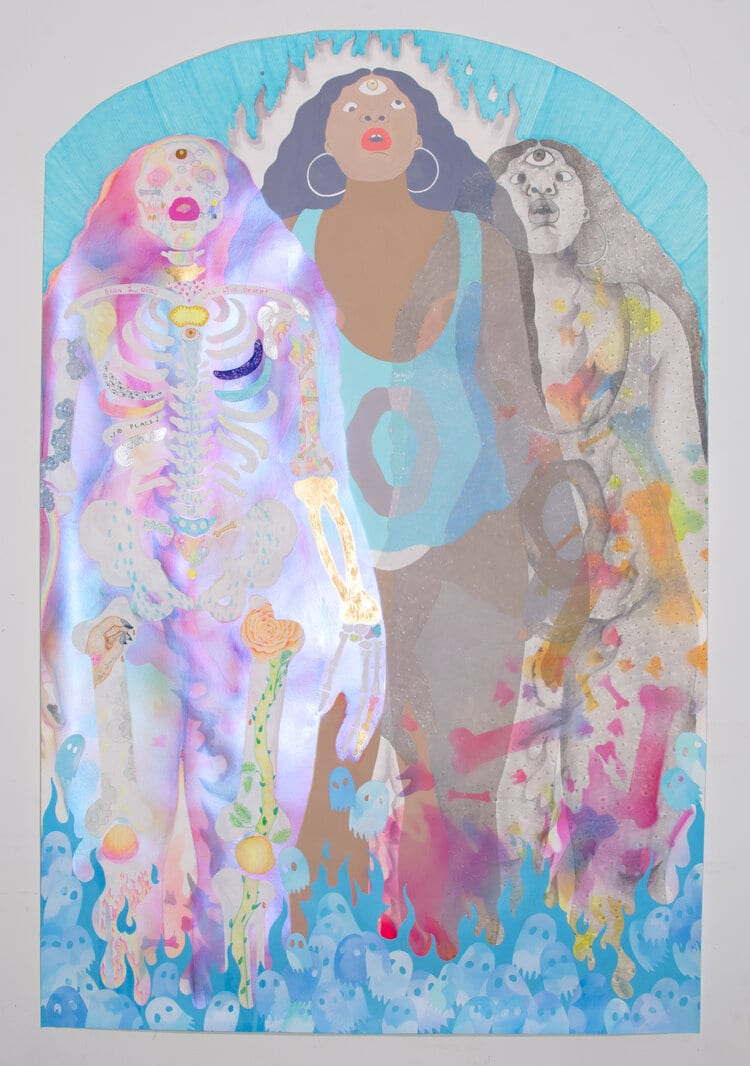Amaryllis DeJesus Moleski is an American Afro-Borinquen artist whose pieces challenge societal norms and historical narratives with vibrant watercolours. Her watercolours create portals into an outer space fantasy where Black and Brown femmes take centre stage and are represented as all-powerful cosmic beings. Through her works, they are beings that able to take control of their narrative and reality itself, an empowering representation of Black and Brown femmes’ identity. These works reflect the United Nations Sustainable Development Goal of Reduced Inequalities and of Gender Equality.
Moleski’s femmes occupy an imaginary space that is a metaphor of in-betweenness. Take for example her piece, The Trouble With Us (tropical storm). Here, three large Black and Brown femmes are filling up a grey cosmic landscape, a symbol of reality’s dreary status quo. One of the figures is made up completely of a rainbow cloud, while another is equipped with a third eye. This gives these figures an all-powerful omniscient aura and presence.
The femmes’ power clashes with the drab background, alluding to the immense strength that Black and Brown femmes possess. The figures in Moleski's work, and by extension Black and Brown feminine people more general, hold a power that is not immediately apparent, in a state of 'in-between'.
The three femme figures in the The Trouble With Us (tropical storm) are also all lying under a rainbow, giving them an air playfulness, further asserting their power and agency over the grey background.

Rainbows are also recurring motifs in Moleski’s pieces. They symbolize both her Queer and Puerto Rican identity. However, Moleski affirms in an interview with The Observer that she does not use rainbows in her painting due to their conventional meaning as symbols of pride and Puerto Rica’s image as the Rainbow Island. Instead, the rainbows in her painting are macabre reminders of the performative mask that people with marginalized identities, such as members of the queer community and Puerto Ricans, are often forced to put on when representing themselves in society.
Being queer and Puerto Rican hardly comes with much privilege, if anything, Moleski is more likely to be discriminated against and disadvantaged. Still, conventionally both identities are represented by rainbows. A symbol which carries with it notions of joy and playfulness.
Moleski wishes to show how rainbows create superficial narratives of what it means to be queer and Puerto Rican. The rainbows in her paintings are there to expose the underlying history of discrimination against the LGBTQ+ community—and the slavery, colonialism and genocide that continues to shape Puerto Rico to his very day.

In her piece The Taker Takes, audiences also how Moleski subverts the traditional notion of power that is associated with masculinity. The Taker Takes portrays a giant femme person dominating much of the canvas’ left side. This is a figure that is engaged in a basketball game with other feminine people— using their mouths instead of hands to play. The size of these figures and the visible strength they are putting into the game engages viewers in an interplay of light, shadow and colours. They further assert Moleski’s message that being femme equates to being powerful into the viewer's psyche.
Moleski's pieces redefine what it means to be Puerto Rican and queer to her audiences. They remind her viewers of the power of imagination and creativity in shaping a collective future. At the end of the day, Moleski's art becomes a call to action for her audiences to dismantle oppressive systems and create a more just and equitable world and future for all.

